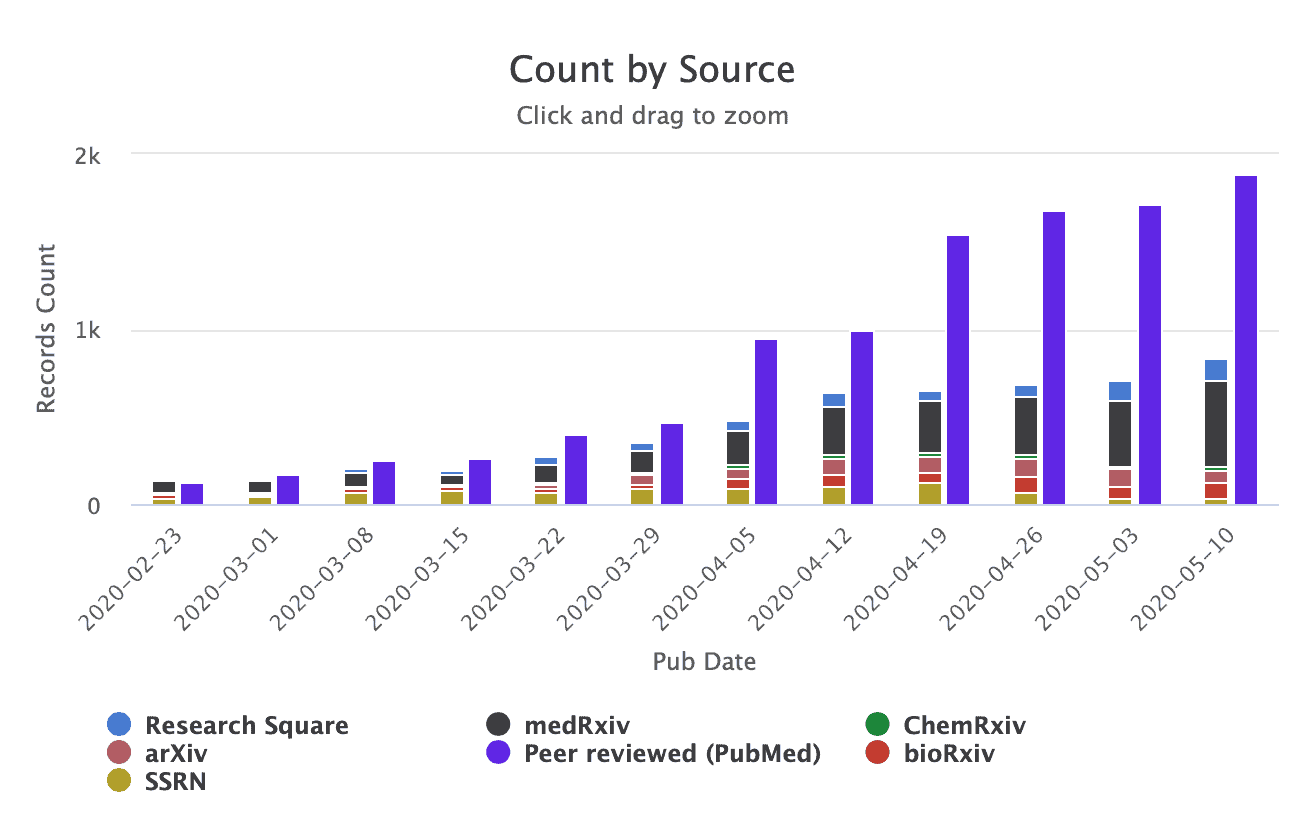In efforts to tackle the ongoing COVID-19 pandemic, research related to SARS-CoV-2 as well as the public health and societal ramifications of COVID-19 is taking place faster and on a larger scale than ever before. Researchers are making use of preprints to freely and quickly disseminate COVID-19 research, and a significant proportion of research related to the outbreak is currently available via preprints. The NIH’s COVID-19 portfolio lists over 5,000 preprints on COVID-19 posted since the end of January, with the highest number of preprints posted on bioRxiv & medRxiv, arXiv, Research Square, Preprints.org, OSF, and the WHO Bulletin.
In addition to papers, researchers are also rapidly sharing data, methods and other materials via repositories or even individual lab sites. In parallel to traditional peer review at journals, feedback and commentary on the latest results is also taking place at different stages of the research process and via diverse channels including social media, preprint servers and dedicated platforms that allow review and/or curation of preprints.
To help you find the latest preprints on COVID-19 and to keep up to date with initiatives around the early sharing of research related to the pandemic, we have developed a dedicated page for ‘Preprints and Rapid Communication of COVID-19 research’. The page provides information on tools to search for COVID-19 preprints, platforms for the review and curation of preprints, repositories that allow rapid sharing of other research output, updates on journal policies as well as media coverage of COVID-19 research and preprints.We hope that you find this a useful resource. We will continue to add to this page with additional items and resources as they arise, if you have any suggestions for additions to this page, please contact iratxe.puebla@asapbio.org.
Image source: NIH’s iSearch COVID-19 portfolio, https://icite.od.nih.gov/covid19/search








What about short comments , analyses of current findings , sharing of ideas which others may have interest to look and pick if appropriate . Speed of information dissemination on this infection is terribly important now , because not everywhere researchers and clinicians are in positions to carryout some early data generation , while at the same time new ideas and new explanations of ovservations may well be there waiting for a quick quality platform , may be as Letter to Editor or something similar . Would like to know .